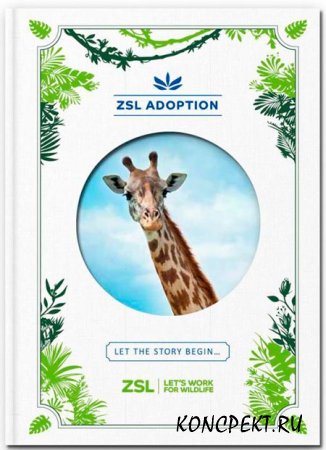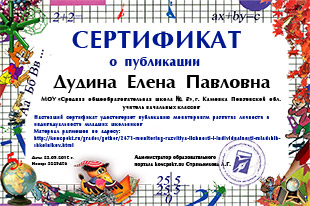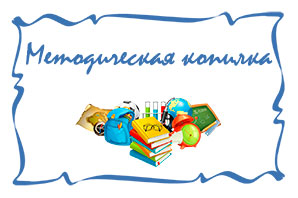Задания проблемного характера предтекстового и послетекстового этапа по теме «Экология»
Для учащихся 11 класса с повышенным уровнем изучения английского языка.
Восприятие и понимание речи на слух
1. Pre-listening activity:
Listen to the member of the Greenpeace organization telling a story about whales. Pay attention to the words:
A rope [ˈroup] веревка
Threat [ˈθret] угроза
Be ready to answer the questions:
- What is the story about?
- What ecological problems did the speaker face one day?
2. Listening
One night there was a big storm with huge waves. It stopped only in the morning.
We were having breakfast when we heard somebody screaming "Whales!" We ran to the beach. I will never forget what I saw that morning. Two whales were lying on the beach, they were so helpless. Are they dead?" I asked Uncle Roger. "One is dead, but the other is still alive," he answered in a sad voice. "Why did they do it?" I continued asking him.
"Nobody knows for sure but many people believe that whales sometimes throw themselves on the beach. They sort of go crazy. Dirty water makes them that crazy. As you know plants and factories throw rubbish into the water," he added angrily.
There were a lot of people on the beach. Some people brought ropes and we began to pull him into the water. It was hard as he was very heavy. I will never forget the moment when the whale began moving in the water and a fountain of water came out of it. We all felt happy.
The whale disappeared but the memory stayed in my heart forever. I think it is the main reason why I decided to study the ocean and protect animals. Now I am a member of Greenpeace and my priority is to protect whales both from hunting and the many other daily threats they face.
3. Post-listening activity:
Answer the questions:
- Why did Uncle Roger explain to the boy why the whales were on the beach?
- How did the people help them?
- How did this event affect the story-teller`s life?
Speaking activity: prove that water pollution is a great danger for whales…
II.
1. Pre-listening activity:
Listen to the student`s essay "Our concern about the World Wildlife".
Pay attention to the words: World Wildlife Fund [wɜːldˈwaɪldlaɪf fʌnd] Всемирный фонд дикой природы
Be ready to answer the questions:
- Why are there many environmental groups and organizations in the world?
- What organization is this text about?
2. Listening
Can you imagine that every ten minutes one kind of animal, plant or insect disappears? If nothing is done about it, over one million of species will disappear in twenty years from now. The seas are in danger. They are poisoned with industrial and nuclear waste. If nothing is done about it, one day nothing will be able to live in the seas.
The tropical rain forests, which are the home of half the Earth`s living things, are being destroyed. If nothing is done about it, they will disappear in the near future.
In the heart is Asia, north-east of the huge Himalayas, there is a region of bamboo forests. It`s the home of the giant panda. It`s sweet face has been the symbol of the World Wildlife Fund since 1961. A giant panda spends 10 hours a day eating. It must eat at least 20 kilos of bamboo every day. Now many forests nave been cut down and pandas have nowhere to go… 140 pandas died of starvation in 1975-1976. Scientists believe that there are only between 400-1000 giant pandas left in the world. It`s absolutely necessary to find ways of protecting these gentle, very beautiful and big animals.
Let's take elephants... These giants need a lot of water and grass. Today many elephants in Africa are dying, because they don't have enough to eat or to drink. Hunters kill thousands of elephants every year. Some kill them for meat. But most kill elephants for their ivory tusks. Most of elephants have gone to national parks. Specialists think that only 2 million elephants live on the planet today.
Fortunately, there are people who are trying to do something about it. There are environmental groups and international green organizations in the world.
In 1961, the World Wildlife Fund (WWF) was founded. It was a small group of people who wanted to raise money to save animals and plants. Today WWF is a large international organization, which has raised over 35 million pounds for conservation projects and has given support to National Parks in five continents. It has helped 30 mammals and birds to survive. If more people give more money, if governments think more about the natural world, The WWF will be able to protect nature and all of us with it…
3. Post-listening activity
Answer the questions:
- Why was the WWF founded?
- What is the aim of the WWF?
- What facts trouble you?
Reading Practice
1. Pre-reading activity:
Read to the student`s essay "Our concern about the World Wildlife".
Pay attention to the words:
World Wildlife Fund [wɜːldˈwaɪldlaɪf fʌnd] Всемирный фонд дикой природы
Donation [dəʊˈneɪʃn] Дарение
Habitat [ˈhæbɪtæt] Ареал
clear pointers [klɪə ˈpɔɪntə] четкие указатели
Be ready to answer the question:
- What organization is it?
- What is the main WWF mission?
2. Reading
The World Wildlife Fund (WWF)
The WWF is the world`s largest independent environmental organization. Originating in the UK where they were formed in 1961 they are now active all over the world.
As a charity the WWF rely heavily on donations from members and supporters.
The WWF Facts:
- it`s a truly global network who are active in more than 100 countries;
- It`s a science-based organization who tackle issues including the survival of species and habitats, climate change, sustainable business and environmental education;
- It`s got over five million supporters worldwide;
- 90 per cent of their income comes from donations from people and the business community.
The WWF are on a mission to stop the degradation of the planet's natural environment. They want to build a future in which we can live in harmony with nature.
It's a simple mission statement but difficult to achieve. They aim to use their practical experience and knowledge to find and implement long term solutions.
They have set out some clear pointers to help achieve their goal:
- to conserve the world's biological diversity;
- to campaign for the use of renewable and sustainable resources;
- to reduce pollution and wasteful consumption.
3. Post-reading activity
Answer the questions:
- What are the most important WWF facts?
- Would you like to join the WWF? Why /why not?
1. Pre-reading activity:
Read the text "Animal Adoption".
Pay attention to the words:
Adopt [əˈdɔpt] Принимать
Shelter [ˈʃeltə] Приют
Rescue [ˈreskjuː] Спасение
monthly fee [ˈmʌnθlɪ fiː] ежемесячная плата
Be ready to answer the questions:
- What does it mean "to adopt an animal"?
- Which kind of adoption is possible in our country?
2. Reading:
a) Animal Adoption
If you have a favourite zoo animal, how about adopting it? Would you like to be a parent to a polar bear…? Your animal will still live at the zoo in the care of professional staff, but you'll go home knowing you're supporting them.
At the present rate of destruction, more than 10,000 species could disappear by the year 2050. Zoos around the world are working together to help save these species.
Taking care of animals is a big job and all zoos need support.
People can support zoos, the work that zoologists do and the animals that we care for by adopting an animal. Adoption fees help people take good care of the animals, protect endangered species, and pursue on-going conservation efforts.
With your symbolic adoption of an animal from a zoo, you not only get to bring home a special part of your visit but are also contributing to the world-class care that we provide to our animals every single day.
Your purchase also supports our conservation efforts in locations both close to home and around the world. By adopting an animal with Zoological Society of London (ZSL) people are helping support conservation work worldwide, as well as help care for animals at ZSL London and ZSL Whipsnade Zoo. In return they will receive a fantastic gift package which can be personalized.
Some big, some small, some weird but all of them wonderful… and with your support that's the way people can keep it. Animal adoption is the perfect gift for animal lovers. People buy an animal adoption package at a zoo or on line. Packages, for example in Belfast Zoo, can be: cub (30 £), bronze (60£), silver (120£) and gold (225£).
In the gold package you'll receive:
- adopters' name will appear on our adoption thank you board displayed at the front of the zoo;
- an animal adoption certificate;
- an animal fact sheet;
- a zoo puzzle sheet;
- an animal badge;
- eight free individual tickets;
- a car sticker;
- a postcard;
- a zoo key ring;
- a Belfast Zoo pen;
- an invitation to our adopters’ day plus three;
- a guided tour of the zoo (up to eight people);
- a chance to meet the zoo keeper who cares for your chosen animal;
- a photograph of your adopted animal;
- your very own animal toy.
They aim to:
- provide the best possible care for our animals;
- organise campaigns and raise funds for endangered species and their natural habitats;
- take part in European and international breeding programmes which help protect endangered species;
- raise awareness of conservation and biodiversity;
- deliver high quality environmental education, training and research.
About the WWF Adoptions
For a small regular monthly fee people can adopt an animal with the WWF for yourself or a friend which will help to safeguard the future of your selected species and their habitat.
Animal adoptions make great charity gifts and are also an excellent way to show support to the world`s wildlife and help to fund the work the WWF does on conservation.
You can also support their great work with a WWF membership or by choosing from one of their selection of charity gifts at the WWF Shop. Individuals, children, schools, clubs, corporations, groups are all welcome in the "Adopt an Animal Campaign". They can adopt an elephant, a tiger, a penguin, a polar bear, a snow leopard, a lion, a mountain gorilla, a dolphin, a panda, a jaguar, an orangutan, a rhino, a turtle…
Adopt a Snowy Animal… Adopt a Big Cat…
Become a "parent" today!
Help wild life with symbolic adoption!
Полную версию материала вы можете скачать по ссылке ниже




